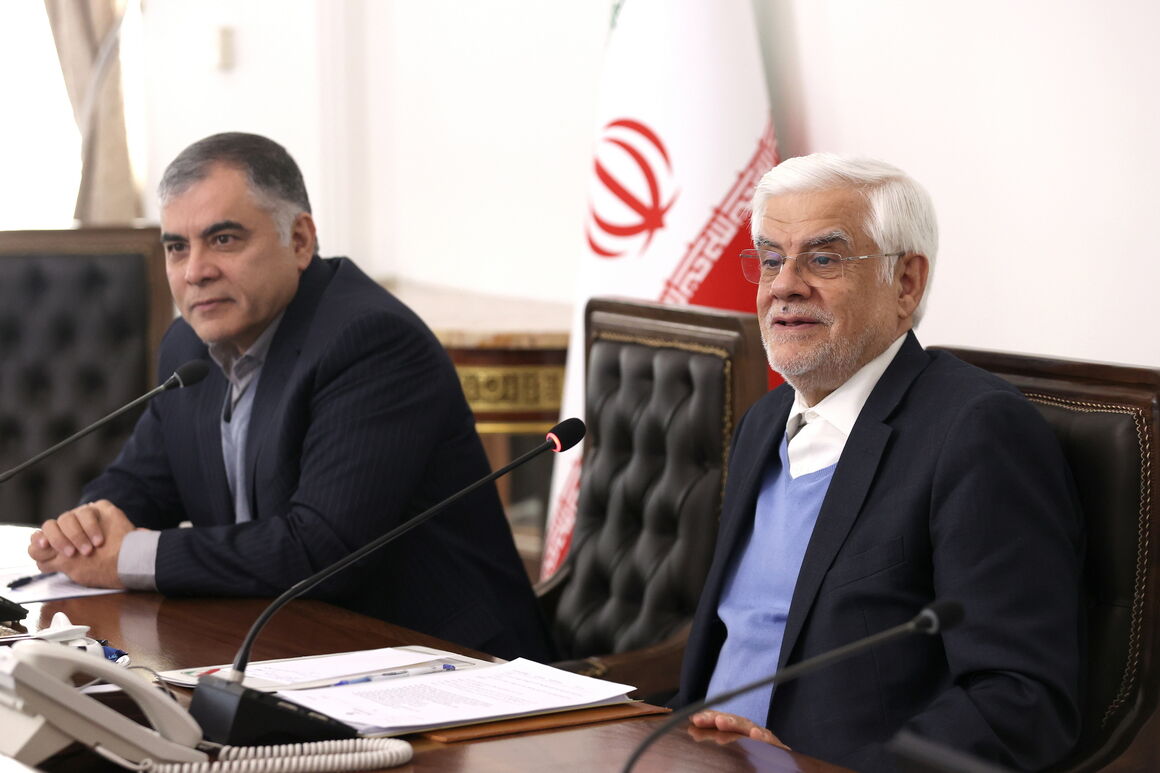Mohammadreza Aref stated, “We are not pursuing superficial metrics or presenting mere statistics; our aim is to take practical steps devoid of slogans. Fortunately, the ministers in this administration are fully aligned and cooperating closely.”
Speaking at the ninth session of the Economic Council on Monday, he underscored the government’s commitment to utilizing the capabilities of technology-based companies and said, “Breaking the country’s reliance on foreign technologies is only possible through leveraging the resources of technology-based companies and academic and research centers. Past experience has shown these entities excel across various fields.”
Aref highlighted the importance of relying on the scientific expertise of Iran’s talented, educated youth, noting, “Embedding technology in all projects is not just a legal obligation but a critical necessity to foster the growth of these tech-based companies.”
Referring to the swift implementation of the Oil Ministry’s projects in shared oilfields, Aref emphasized their pivotal role in the national economy and revenues.
He reiterated that the administration is steering clear of superficial achievements and statistics, focusing instead on coordinated, effective action among government officials.
Aref pointed to the second phase of development for the Azar shared oilfield in Ilam and the Masjed Soleyman oilfield.
He acknowledged the significant contributions of Masjed Soleyman’s people to the nation and praised the bravery of Ilam’s citizens during the eight-year Iran-Iraq war.
The vice president emphasized the government’s responsibility to prioritize infrastructure and public services in these regions, particularly roads and essential amenities, as part of major oil projects.
Approval of Azadegan, Azar, Masjed Soleyman oilfield projects
In the session attended by the head of the Plan and Budget Organization, the government spokesperson, the Vice President for Science, Technology, and Knowledge-Based Economy, the cabinet secretary, and the ministers of oil and agriculture, along with the Central Bank of Iran governor, three major oil field development projects—Azadegan, Azar, and Masjed Soleyman—were approved. These projects involve a total direct investment of $12 billion, with funding sources identified.
The long-term contracts are expected to generate approximately $140 billion in revenue for the government, with significant contributions from domestic and tech-based companies.
The development plan for the shared Azadegan oilfield, the country’s largest oil project, aims to enhance recovery, boost production, and optimize operations. The project, proposed by the Oil Ministry, targets cumulative additional production of approximately 1.765 billion barrels over three years and received approval from the Economic Council.
Additionally, the recovery enhancement, production increase, and operational optimization of the Azar joint oilfield were approved. This $1 billion investment aims to add 177 million barrels of oil to national production capacity over a 20-year contract.
The development and operation of the northern wing of the Masjed Soleyman oilfield, with a $257 million investment, were also approved. This project targets an additional 21 million barrels of oil over a 20-year period.


Your Comment